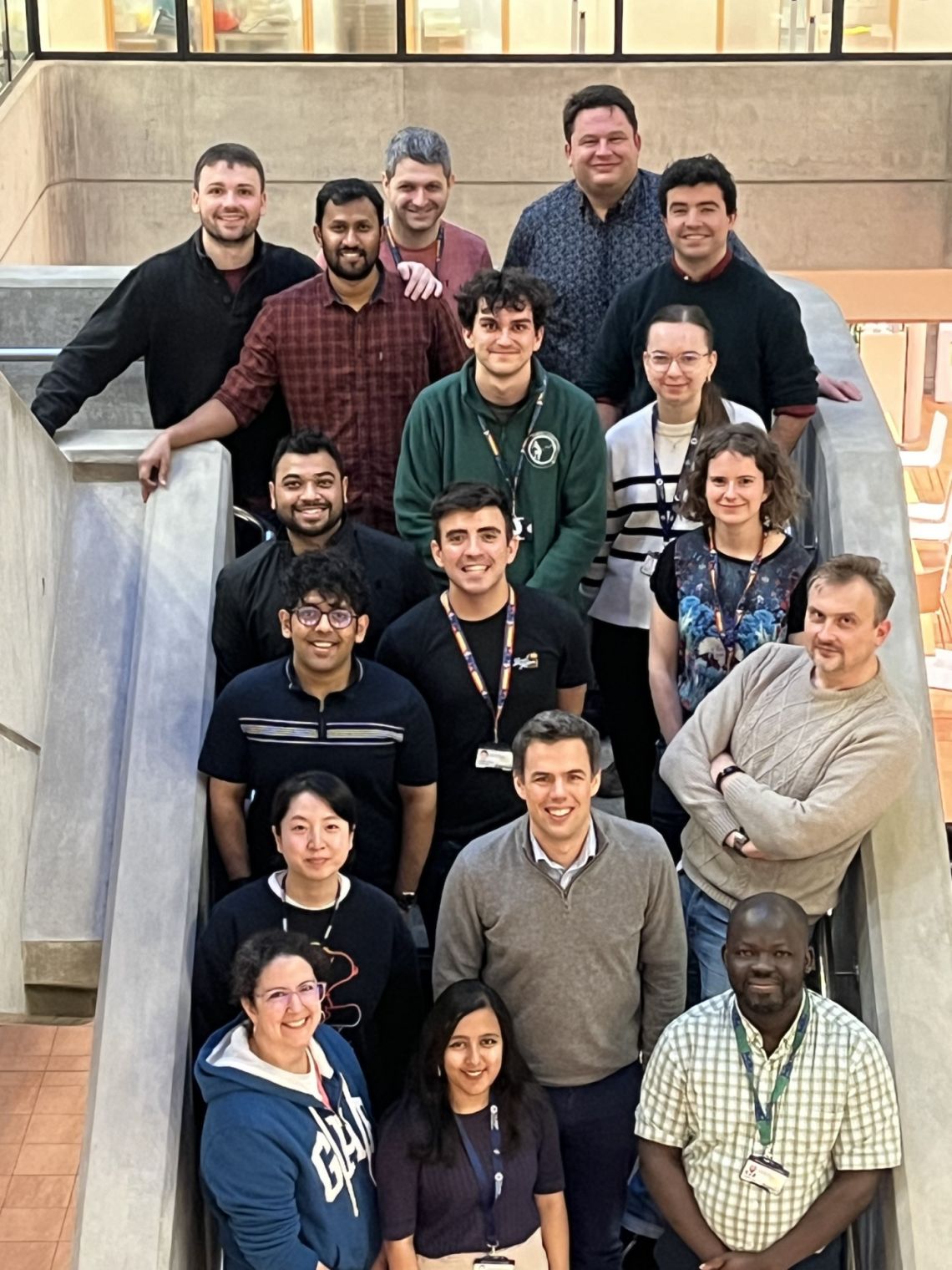
Contact information
01865 617624
Sandy Douglas Lab Group LinkedIn Page
Old Road Campus Research Building
Research groups
Alexander (Sandy) Douglas
DPhil, MRCP, FFPM, DipStat
Associate Professor
Vaccine Development
I am a pharmaceutical physician, Wellcome Trust Career Development Fellow and Wellcome-Beit prize winner.
My main interests are the development of new antibody-inducing vaccines and breaking down the barriers to translation of new biological medicines into clinical trials. My group's work spans from protein biochemistry and virology (seeking to design new and improved vaccine antigens), through development of high-quality yet cost-effective biological manufacturing processes, to Phase I/II clinical trials.
VACCINE MANUFACTURING
My group led manufacturing scale-up of the University of Oxford COVID-19 vaccine up to the point of transfer to AstraZeneca. This included the development of the novel low-cost large-scale manufacturing process, and initiating the formation of the UK & international 'distributed manufacturing site' consortium which has produced over a billion doses.
I lead the University's Bioprocess and Analytical Development (BiPAD) team. I am particularly interested in bringing together clinical and bioprocess understanding to make small-scale GMP manufacturing more cost-effective, lowering the barrier to experimental medicine and early-phase clinical development of novel interventions.
I am a Co-Investigator on the EPSRC funded Future Vaccine Manufacturing Research Hub (Vax-Hub),
VIRUS-TARGETING VACCINES
My Wellcome Fellowship aims to develop a vaccine against Epstein Barr virus, and an improved vaccine against rabies. The two viruses are linked by similarity in the proteins which they use to enter host cells, and which can be targeted by vaccines.
There is currently no vaccine against EBV. Although most people are infected without suffering serious effects, it causes a substantial burden of cancers and may drive development of certain immune-mediated diseases, such as multiple sclerosis. I am investigating whether and how an EBV vaccine could prevent these complications of infection.
There are existing rabies vaccines, but they require multiple doses, cold-chain storage and are moderately expensive: as a result they are not widely used in rabies-endemic areas, and 50,000 people die of rabies every year. I have developed and am leading clinical trials of an adenovirus-vectored rabies vaccine which aims to provide a cheap, single-dose tool suitable for mass pre-exposure rabies prophylaxis. The clinical trials are funded by an MRC DPFS award.
MALARIA
I previously identified the potential of PfRH5 as an antigen capable of inducing highly potent strain-transcending neutralising antibodies against the Plasmodium falciparum blood-stage and demonstrated that PfRH5-based vaccines could achieve in vivo protection against a virulent P. falciparum challenge. These vaccines are now in clinical trials, and one of them has recently become the first vaccine to achieve a significant effect upon blood-stage parasite growth in a controlled human infection ('challenge') study.
Recent publications
-
Rabies glycoprotein engineering for improved stability and expression.
Journal article
English S. et al, (2025), Vaccine, 62
-
Routine childhood rabies pre-exposure prophylaxis can be cost effective in low- and middle-income countries.
Journal article
Ritchie AJ. et al, (2025), Vaccine, 47
-
A screen for Plasmodium falciparum sporozoite surface protein binding to human hepatocyte surface receptors identifies novel host-pathogen interactions.
Journal article
Segireddy RR. et al, (2024), Malaria journal, 23
-
Accelerated and intensified manufacturing of an adenovirus-vectored vaccine to enable rapid outbreak response.
Journal article
Joe CCD. et al, (2023), Biotechnol Bioeng
-
Safety and immunogenicity of ChAdOx1 nCoV-19 (AZD1222) vaccine in adults in Kenya: a phase 1/2 single-blind, randomised controlled trial
Journal article
Hamaluba M. et al, (2023), Wellcome Open Research, 8, 182 - 182
Douglas Group


